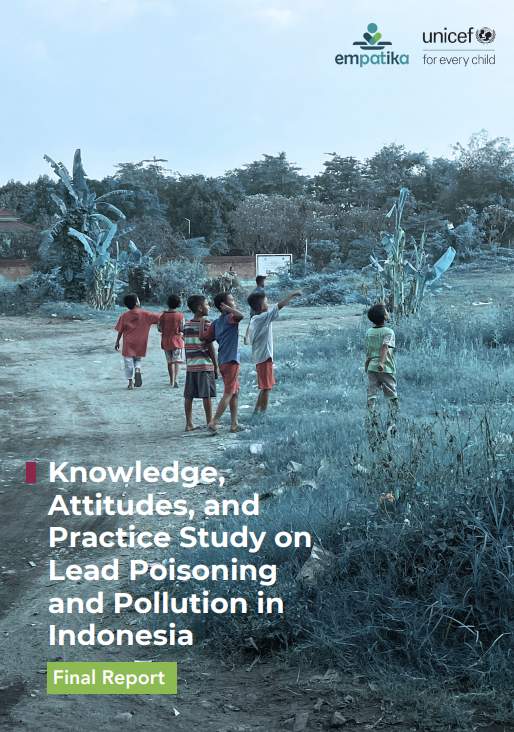Knowledge, Attitudes, and Practice Study on Lead Poisoning and Pollution in Indonesia
Though lead exposure poses many short and longer health risks to humans, many people are unaware of lead in their environment and risks of exposure. In Indonesia, this includes more than 36 million children who are estimated to have high lead levels in their blood. However, little is known about people's awareness of lead exposure and their prevention measures.
This report presents the findings of a mixed methods study implemented by Empatika and commissioned by Vital Strategies, with the aim to explore people's knowledge, attitudes, and practices (KAP) about lead exposure in Indonesia. Findings from this study draw on data gathered through a combination of participatory focus group discussions (pFGDs), an in-person household survey and in-person interviews. Data was collected in Tegal District, Central Java and Bogor District, West Java, which were selected based on the presence of lead-acid battery (ULAB) recycling facilities and their history of lead contamination.
Most people were familiar with ULAB smelting. However, the majority of respondents had never heard “about lead,” and those who did considered it to be a visible material rather than a chemical substance. The majority of people did not know the level of lead exposure in their area, nor were they aware of possible sources of lead exposure. The majority of people are not aware of sources of lead exposure other than ULAB smelters. Some identified food, aluminum smelting, drinking water and plumbing as other sources of lead, but most do not consider smelting waste as a source of lead exposure.
While people were not familiar with lead, the majority of respondents considered ULAB smelting to have negative health impacts. Most identified respiratory problems resulting from the smoke as the main effects of lead, and identified children under 5 and the elderly as the most vulnerable to health risks from the smelting. However, there is little knowledge about the long-term effects of ULAB smelting, including developmental, cognitive or behavioural challenges.
